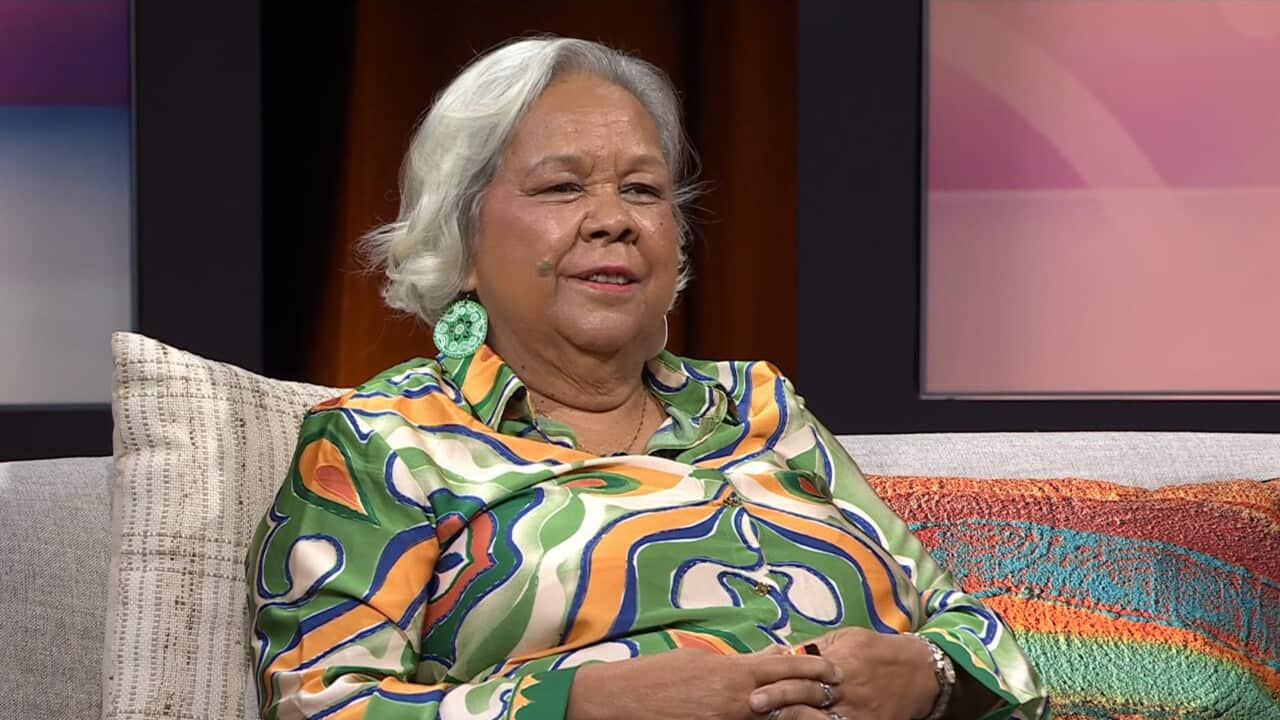Aunty Jackie Huggins was at primary school in Brisbane in 1960s when a teacher singled her out in a moment that would radically change her perspective.
The Bidjara and Birri Gubba Juru girl was the only Aboriginal student in her year three class when a fresh-faced young teacher told them to get to their feet if they were Australian.
Speaking on NITV’s The Point, Aunty Jackie recalled her confusion when he had asked everyone except her to sit down and declared to the class that she was the "real Australian" in the room.
"He based his whole class lesson around the fact that I was Aboriginal, and that I was here for a very long time, and we were the first peoples of this country, and it made me feel so proud," Aunty Jackie said.
"I've always thought about that lesson and those lessons from teachers who have that incredible power to really affirm their children in the classroom, even if you are so different from the rest."
This formative classroom experience proved to be the exception rather than the rule and Aunty Jackie overcame bigotry and low expectations on the road to becoming an accomplished author and academic.
"I always say to teachers: 'You know, you have that power to really make or break a child's life in terms of their own identity'," she said.
Today, the data is clear that education is fundamental to improving outcomes for First Nations people, yet Indigenous students continue to lag behind the broader population.
The national agreement on Closing the Gap was launched in 2008 with the commitment to reduce disadvantage among Indigenous Australians in health, life expectancy, employment, and education by 2031.
According to the latest report, only one of the five education-related targets is considered to be on track.
Charles Darwin University education researcher Dr Tracy Woodroffe said it’s important to maintain a broader perspective on our national approach to education.
"The Australian education system is meant to cater for all Australians," she said.
"Instead of us thinking about Aboriginal people — us as people failing — we need to look at what's the responsibility of the system itself and to not position ourselves as helpless in the process, but think of how we change a system and how we change what teachers learn and how they operate within a classroom."

Less than 2 per cent of registered teachers in Australia are Indigenous and Woodroffe said an "infiltration" of First Nations teachers and perspectives will help to transform the system from within.
"If more students had that positive experience of schooling, perhaps also then they might decide to be teachers themselves to teach the next generation the way that they wanted to be taught," she said.
"For that to happen, though, they need teachers to engage them in the first place and to be able to work in a way that helps the students feel like they belong within that school."
Despite Aboriginal and Torres Strait Islander Histories and Cultures having been part of the national curriculum since 2012, the majority of non-Indigenous teachers over 35 say they 'lack confidence' in this area.
"I think it's a little bit of a cop-out," Woodroffe said.
"It's easy to say, ‘I don't want to offend anyone. I don't know about that. I might get it wrong.’
"But we're adults, and if we are setting out on this path to be educators, we should be educated and understand how to find the answer to something that we don't know."

Aunty Jackie agreed that there is still a long way to go, but she has seen enormous change in her lifetime.
"Who would've ever thought a little shy Black girl like me is now a professor?" she said with a chuckle.
"I've always said to younger people, you've got to have an education because that is about your liberation in this country.
"That is the way we can fight to close the gap."
The Point airs Tuesdays at 7.30pm on NITV, and is available after the broadcast on SBS On Demand.
For the latest from SBS News, download our app and subscribe to our newsletter.

